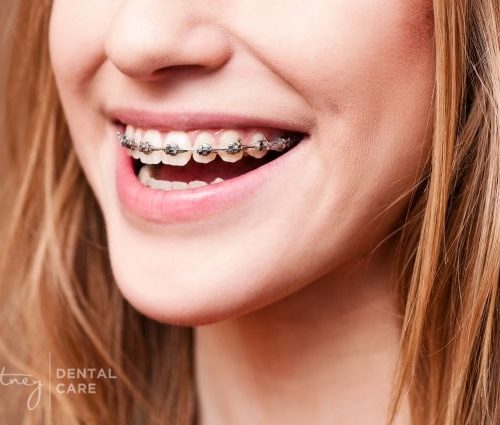5 Dental Problems That Can Be Avoided With Regular Check-Ups
We all know from an early age that you need to take care of your teeth and gums if you want to live a long and healthy life. And although most of us take care of our teeth pretty well and visit the dentist regularly, there are a lot of people that do not look after their oral health as they should. But neglecting that visit to the dentist once a year can cause many different health issues, so it is important to know why you should visit the dentist regularly.
1. Gingivitis
Gingivitis (also known as gum disease) is an inflammation to the gums which is usually caused by poor oral hygiene. The problem often occurs when you stop flossing your teeth regularly and the plaque starts to build-up, so regular brushing and flossing can prevent this problem from occurring. If you have gingivitis you may experience the swelling or bleeding of your gums, and your infection can get worse the longer it is left untreated. But gum disease can increase your risk of serious health conditions such as heart disease, stroke and diabetes, so it is important to pay attention to your symptoms before it is too late.
2. Cavities
Cavities are holes that develop in your tooth when it decays or breaks down. They are very common, especially in people who don’t look after their teeth correctly, but they can be dealt with if you catch them early before they get worse. A small cavity may cause a hole in the enamel of your tooth, but if it is left for a long time, it can make its way through your tooth and cause irreversible damage. If you don’t do something about your cavities you could have problems with chewing or eating in the future or you could even lose your teeth, so you need to be careful if you think you have a cavity.
3. Periodontitis
If you let your gums get seriously infected, you could develop a condition called periodontitis. Periodontitis is the second stage of gum disease and it can cause receding gums, severe pain and even loss of teeth if you let the condition progress to the later stages. If you have any serious health issues like type 2 diabetes, immune issues or you are obese, you are more at risk than other people to get periodontitis, so you will need to be extra careful. Sometimes, people will be completely unaware that they have the condition, as you can have mild to moderate symptoms while being severely affected by the disease, without even knowing it. So, if you suspect that anything is amiss with your teeth and gums, consult your dentist immediately.
4. Cracked or broken teeth
A common dental problem amongst many people is cracked or broken teeth, but you can often prevent this problem from occurring if you look after your teeth. Although accidents do happen and you can not prevent them from occurring, you can make your teeth more resistant to cracks and breaks if you look after them properly. Brushing and flossing your teeth regularly is how you keep your teeth feeling healthy and strong so that they are less likely to break or crack when something happens to them. You should also be mindful of clenching or grinding your teeth, as this can make your teeth more prone to cracks and breaks as well. If you notice a crack or break in your teeth or you suspect that there may be a problem, you need to visit your dentist immediately so that they can save your tooth before serious damage occurs. Dentists will always try to save your tooth if they can by fitting a crown to your tooth or performing a root canal to keep the integrity of your original tooth, without extracting it.
5. Tooth enamel erosion
Every tooth is made up of several layers that helps to protect the inner layer from any damage, and the outer layer of your tooth is known as the enamel. Tooth enamel erosion occurs when the tooth enamel starts to decay and break down over time. This is usually due to things like chemicals that we ingest that are highly acidic or it can be caused by health conditions like acid reflux, diabetes or bruxism. Certain medications such as antihistamines and aspirin can cause tooth enamel erosion as well if you take them regularly, so you need to be careful about what you eat if you are more prone to tooth enamel erosion. You will also need to be gentle when you are brushing your teeth every day, as hard brushing can affect the enamel on your teeth as well. Talking to your dentist if you suspect that you have this problem is always a good idea. They can help you to take preventative steps to preserve your tooth enamel for as long as possible, which will prevent you from having restorative surgery for your tooth enamel later on.
Bruxism And TMJ; What Is The Difference? 5 Ways To Beat Dentist-Related AnxietyLatest from the Dental Blog
 01 Mar 2021
01 Mar 2021
How to Prepare for Braces
Getting orthodontics treatment for your teeth is a big decision, no doubt. Getting braces gives you a perfect set of…
 25 Nov 2015
25 Nov 2015
6 Benefits of Smiling
Smiling can have a positive effect on your overall health and well-being. Research has shown that there are numerous health…
 01 Mar 2018
01 Mar 2018
What You Need to Know About Dental Implants
Everyone wants to have a healthy set of teeth. Unfortunately, tooth decay, gum diseases, injuries, and even the process of…
